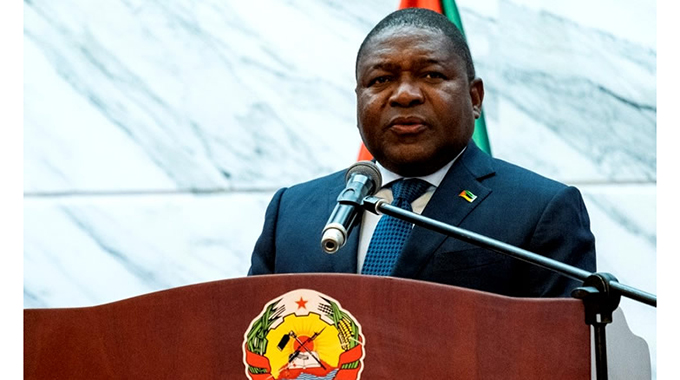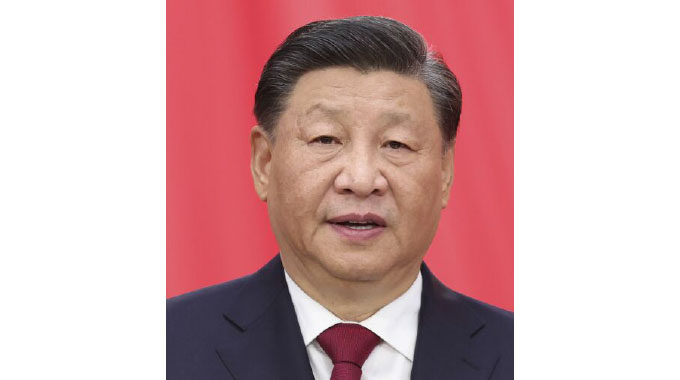COP27 delivers for Africa

Africa Moyo recently in SHARM EL-SHEIKH, Egypt
Zimbabwe and the African Group of Negotiators were delighted yesterday after successfully pinning down wealthy nations to commit to setting up a Loss and Damage Fund to financially support poor countries when affected by floods or drought due to climate change.
Further, meaningful progress was recorded in negotiations on the climate adaptation and mitigation fund, although not much was recorded on phasing down use of fossil fuels.
COP27 ran from November 4 to 18 in Egypt, and had almost ended without a meaningful deal, sparking fears among climate change activists and representatives of developing countries.
Negotiations had to continue well into the night on Friday and Saturday as the African Group of Negotiators sought to find an acceptable deal.
In an interview yesterday after the loss and damage deal was clinched, an ecstatic Deputy Minister of Environment, Climate, Tourism and Hospitality Industry, Barbara Rwodzi, said Zimbabwe and Africa were finally excited although they would have wanted more.
“We are happy as Zimbabwe because we have played a big role on behalf of Africa, together with Zambia, which is chairman of the African Group (of Negotiators) and we have achieved what we were looking forward to,” she said.
“This COP was for Africa and implementation was done here, more so about the Loss and Damage Fund, which was structured and effected today (yesterday). It’s (the deal) acceptable for us as Africa. We are happy, we are celebrating.
“Of course, we have a number of things that we need to sit down and discuss and bring to fruition with our partners.
“Otherwise, we thank them for dedicating themselves towards the Fund. Adaptation and mitigation (funding) is very key for Africa and of course, we want to push more.
“We did not get everything; you can’t get everything 100 percent in negotiations. We lost on other things, but we are happy with the structure that was built towards mitigation and also adaptation.”
Deputy Minister Rwodzi said she was looking forward to working with other developing countries, and the partners who will make financial contributions towards the fund.
“This fund on loss and damage is not charity; it’s an investment into everyone’s future,” she said.
“As the Zimbabwe Team, we never left the negotiation rooms, we stayed for the last three days; day and night because this was dicey and decisive to deliver.
“We compromised a lot, on one condition that Loss and Damage must pass for the world and for the 1,3 billion Africans hardest hit by climate change. Africa and Zimbabwe are at huge risk from climate, and we carefully put a strategy to win this matter. We were not doing it for just ourselves, the world is under crisis and will be affected worse if we did not act.”
Zambian Minister of Green Economy and Environment, Collins Nzovu, who is also the African Group of Negotiators chairman, was equally excited at the outcomes from COP27.
“There are a lot of issues which were on the table and there are areas where we have made a lot of progress,” he told journalists.
“Building from COP26, we had high expectations. One of our very important issues on the table was on Loss and Damage and after intense negotiations, it has culminated into a framework for Africa. I think it was a momentous occasion for us as Africa. If we are going to measure the success of COP27, it was on this.
“We are suffering the most, so speaking to this very important issue in Africa on climate; it is very momentous for us. We are also very excited about climate finance.
“For the very first time, the world has come together and agreed that there is a need to reform our systems and have cheaper financing, which is easily accessible because you cannot put money on the table and then you are not able to access.”
Minister Nzovu added that he was also happy that developed countries had promised to keep their emissions at 1,5 degrees.
At COP26 in Glasgow, Scotland, an agreement to phase down, if not eliminate coal use, had been made although developing countries did not sign saying they would do so when they access funds to switch to renewable energy.
“It’s a give and take in negotiations; we believe that it is dialogue,” he said.
“We are beginning to see promise. Loss and Damage funding was on the table from the first day (as an agenda item) and now that we won it, we are now waiting for implementation, implementation and implementation.”
COP27 president and Egyptian Foreign Minister, Sameh Shoukry, said: “We rose to the occasion. We worked around the clock, day and night, but united in working for one gain, one higher purpose, one common goal. In the end we delivered. We listened to the calls of anguish and despair.”
UN Secretary-General Antonio Guterres, said the loss and damage fund was “an important step towards justice” for developing countries which contribute way less to climate change compared to wealthy nations.
“I welcome the decision to establish a loss and damage fund and to operationalise it in the coming period,” he said.
“Clearly, this will not be enough, but it is a much-needed political signal to rebuild broken trust. The voices of those on the frontlines of the climate crisis must be heard.”
As more people left the COP27 from midday Friday to catch planes back home, developing countries had given up hope of getting a good deal from COP27.
Analysts had described COP27 as the worst of all other 26 conferences of the parties held in the past due to lack of will by developed countries to commit to funding for climate adaptation and mitigation, and setting up the Loss and Damage Fund.
For now, it is time for Africa and the rest of the developing countries to celebrate while also study in detail the deals they entered into.










Comments